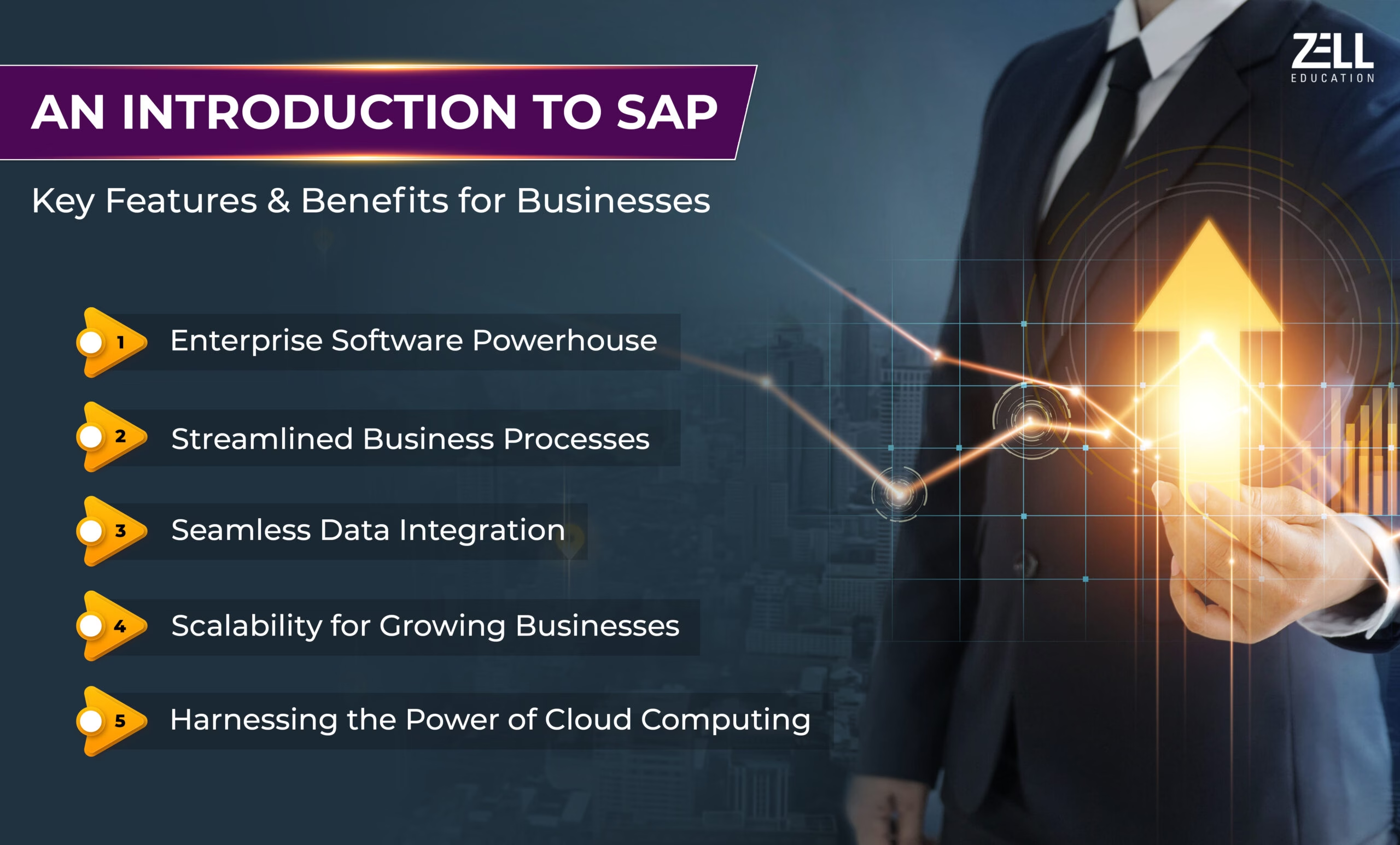In this present competitive business environment, any organisation needs an efficient and integrated system in its quest to streamline its operations and gain that long-awaited competitive edge. The best enterprise software solution is SAP. SAP brings one comprehensive set of solutions that optimises business processes and data integration in all facets, harnessing the full potential of cloud computing and scalability in business.
This blog will introduce you to SAP, discuss its key features, and explain the benefits of the same for businesses.
What is SAP?
SAP stands for Systems, Applications, and Products in Data Processing and is a comprehensive software suitable for businesses to make operations much more streamlined. It brings the finance, human resources, procurement, and supply chain management functions together under a single system. It allows for the real-time management of data, thus improving both the efficiency and decision-making for departmental collaboration. SAP is scalable and can apply to businesses of varying sizes and industries with customised solutions. Further, SAP also incorporates tools for data analytics, reporting, and automation.
Key Features of SAP
Enterprise Software Powerhouse:
SAP is a powerful enterprise software, containing the application of many modules. It integrates all the functions, such as finance, human resources, supply chain management, and customer relationship management, together. This will assist organisations with comprehensive management of their core business processes.
Streamlined Business Processes:
One of the distinct features of SAP is that it tries to streamline the business process. Through its preconfigured best industry practice-based business process, organisations can optimise their operations. By implementing SAP, businesses would be able to automate workflows, erase manual tasks, reduce errors, and work more efficiently in doing their everyday activities.
Seamless Data Integration:
SAP integrates data across a diverse set of departments and systems within an organisation efficiently. This serves as an access point connecting all various functions and facilitates real-time data sharing. The integrations end data silos that improve the accuracy of the data and provide business functions with a holistic view of their operations, allowing sound business decisions based on reliable information in real time.
Harnessing the Power of Cloud Computing:
SAP offers cloud solutions that take advantage of the potential of cloud computing. Cloud deployment provides lots of benefits, such as flexibility, scalability, and cost efficiency. With SAP’s cloud offerings, businesses can have access to their applications and data from anywhere, enjoy automatic updates and upgrades, and scale their resources as needed without extensive investments in infrastructure.
Advantages of SAP to Business Organisations
Increased Efficiency and Productivity
Perhaps one of the most impactful efficiencies of implementing SAP relates to having several business functions on a single platform, which reduces high manual work, eliminates data silos, and repeats tasks. Employees can focus on more strategic and value-adding activities instead of spending time on administrative tasks, thus increasing productivity throughout the organisation.
Access to Real-Time Data and Decision-Making
In return, using SAP will expose a company to real-time data and analytics that greatly increase decision-making abilities. It would mean executives and managers have more updated information regarding the operational aspects, finance, sales, and customers’ behaviours, thereby making sounder decisions in time. Thus, such openness also strengthens its position on adapting quicker responses toward the changing nature of markets and the demands of the customer.
Scalability and Flexibility
Growing companies may find the scalability of SAP the great thing it presents because their applications in larger companies can handle growing volumes, high levels of users, and massive transaction loads, which, in turn, will help reduce workload. Growing companies would remain at liberty to carry on SAP services irrespective of the magnitude of changes over the short term.
Regulatory Compliance and Risk Management
Solutions from SAP will help these businesses maintain compliance by supporting applications in financial reporting, as well as audit trails and proper legal documentation. In terms of integrated systems, a fully integrated system can help find threats early on and enhance the ability toward compliance management and prevention and protection against problems.
Conclusion:
In conclusion, cost reduction also forms part of the aspect from which solutions of SAP save firms. Even though SAP implementation is expensive in terms of time and money, the long-term benefits are huge. With improved efficiency and error minimisation, the business will reduce operational costs.
With core features and benefits, the enterprise software of SAP is highly robust. It helps businesses streamline the whole process, enable seamless integration with other data, harness the cloud’s powers, and scale up easily with time. By implementing SAP into their systems, businesses would not only increase their productivity levels but also make informed decisions with a competitive edge in such a fast-paced business world today. It makes way for growth, innovation, and success, embracing SAP as a strategic technology partner. If you are not clear regarding what course to choose, contact Zell Education. We are happy to help you make the right decision for your career.
FAQs on SAP:
What does SAP stand for?
SAP stands for “Systems, Applications, and Products in Data Processing.”
What is the SAP used for?
SAP is used for enterprise resource planning (ERP) so that the business processes can be dealt with in finance, logistics, human resources, etc.
What is SAP famous for?
SAP is renowned for its powerful ERP software that helps organisations streamline operations and manage data effectively.
Can I learn SAP for free?
Free tutorials and resources on basic SAP topics can be found online, but more comprehensive training and official certification usually require a paid course.

